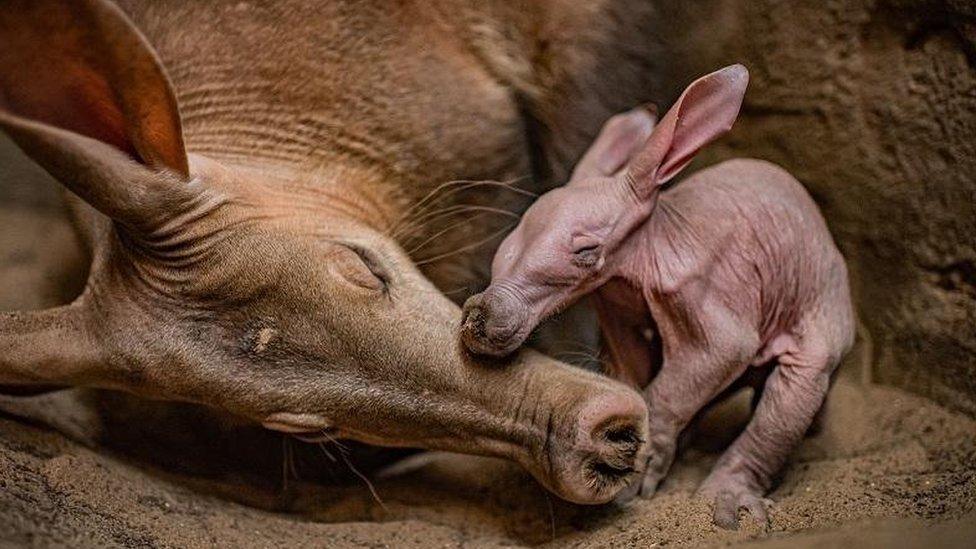Chester Zoo celebrates first UK breeding of rare chameleon
- Published
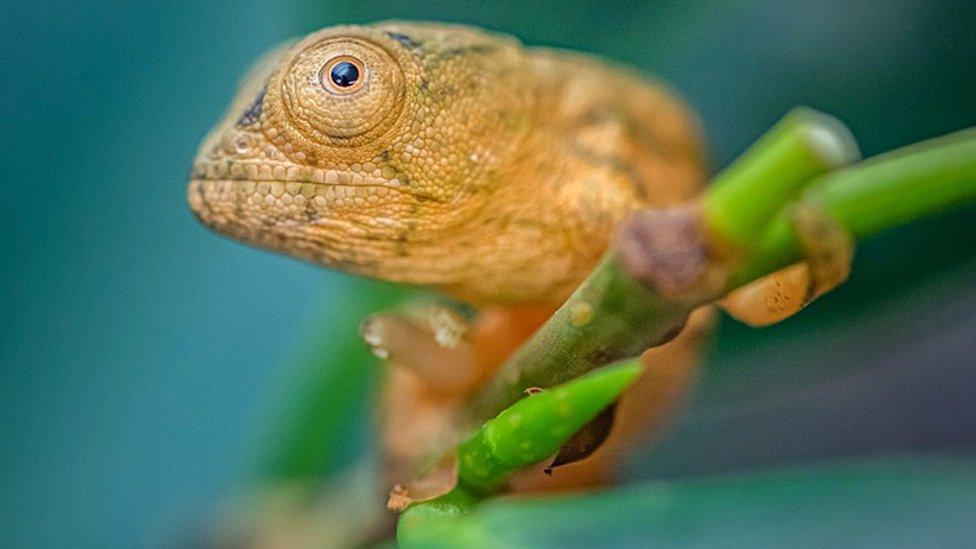
The breeding involved mimicking conditions in Madagascar which was "no easy feat", Chester Zoo says
Chester Zoo has celebrated the birth of 10 chameleons, with the breeding of the "highly-threatened" species claimed to be a "first" in the UK.
Reptiles manager Jay Redbond said it was a "major breakthrough" for Parson's chameleons.
The breeding involved "meticulous" monitoring of temperature to try "mimic" conditions in Madagascar, he added.
The first hatchling arrived on 30 June and 17 eggs remain incubation.
Mr Redbond said it was "momentous and exciting" to be the first UK zoo to successfully hatch the chameleons, adding: "The levels of intricate care and attention to detail provided by the team over a number of years to achieve this breeding success has been truly remarkable."
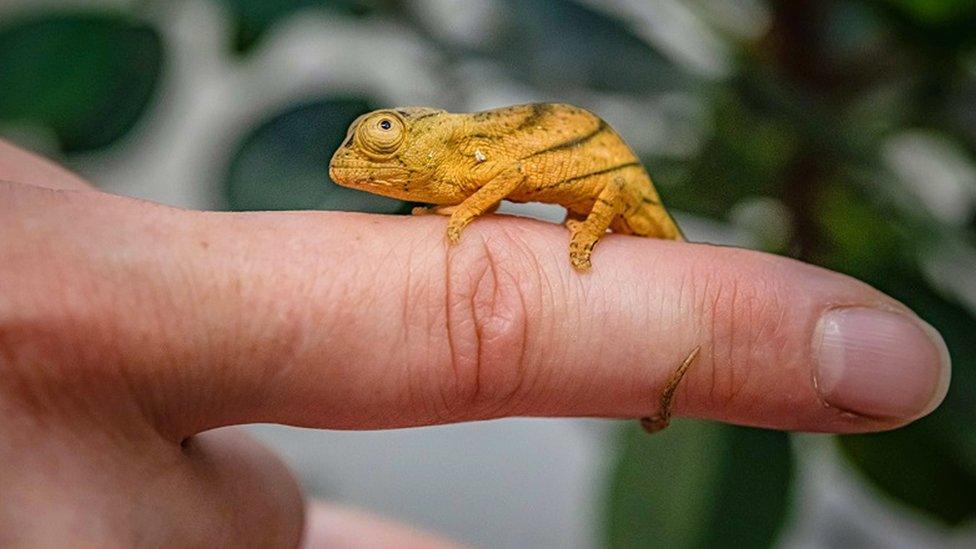
Hatchlings have an incubation period of nearly 600 days
He added: "We've had to carefully replicate the seasonal variations of Madagascar and mimic the exact same conditions these chameleons experience on the island, right here in Chester, and that's no easy feat.
"Every slight tweak to temperature and humidity each day and night has been meticulously recorded and, now that we've cracked this, we believe we'll be able to take this information and apply it to help save some of Madagascar's other threatened reptile species."
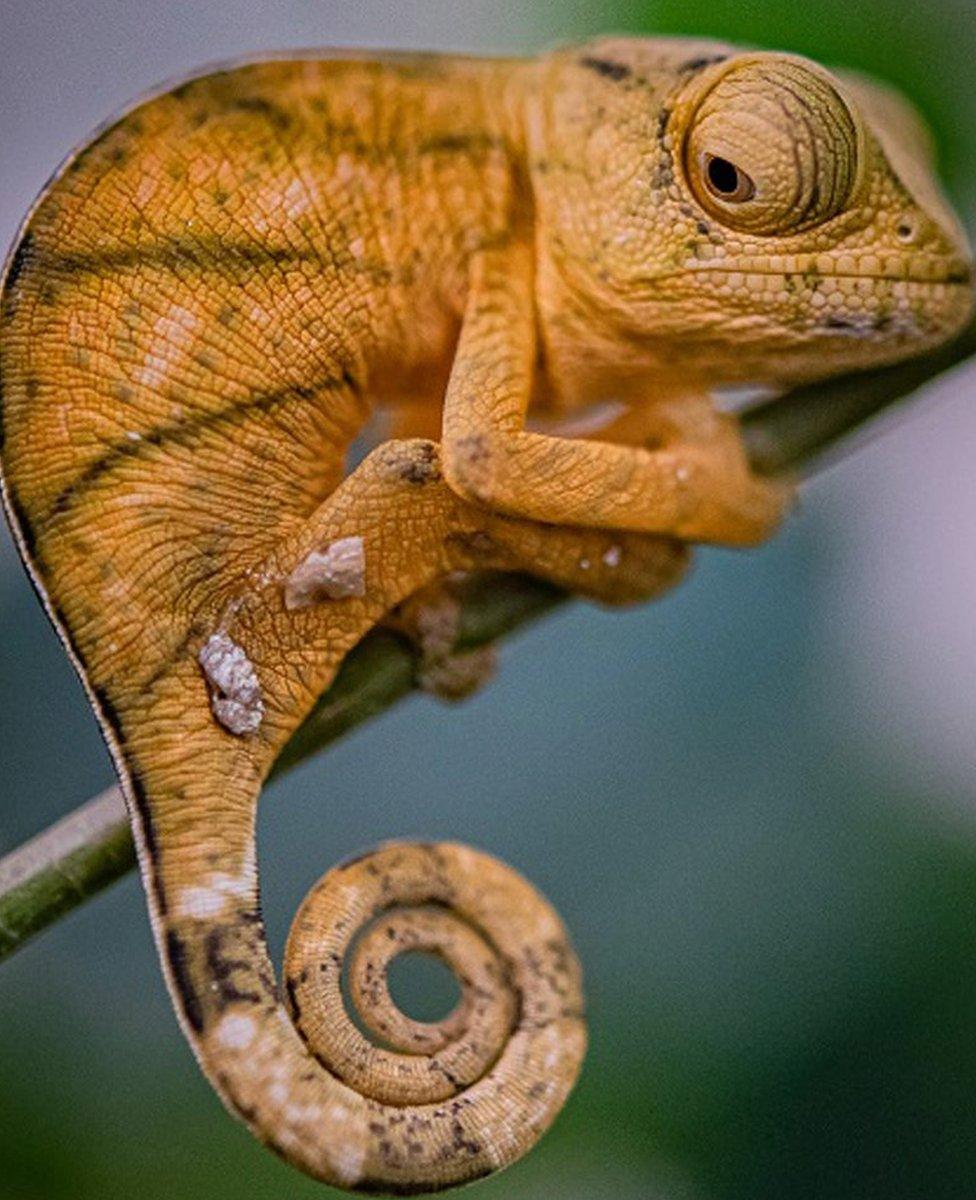
The Parson's chameleon is the world's largest species of chameleon
Mr Redbond said the "important clutch of eggs" would help play a part in "preventing the extinction" of the "incredible species".
The Parson's chameleon is the world's largest species of chameleon and hatchlings have an incubation period of nearly 600 days.
The species' existence in the wild in Madagascar is under threat from deforestation.
The first of Chester Zoo's hatchlings weighed in at 1.5 grams (0.05 ounces) and measured 2cm (0.8in) and they are expected to grow to around 70cm (2.3ft) and weigh 800g (28.2 ounces).

Why not follow BBC North West on Facebook, external, Twitter, external and Instagram, external? You can also send story ideas to northwest.newsonline@bbc.co.uk, external
Related topics
- Published1 October 2022
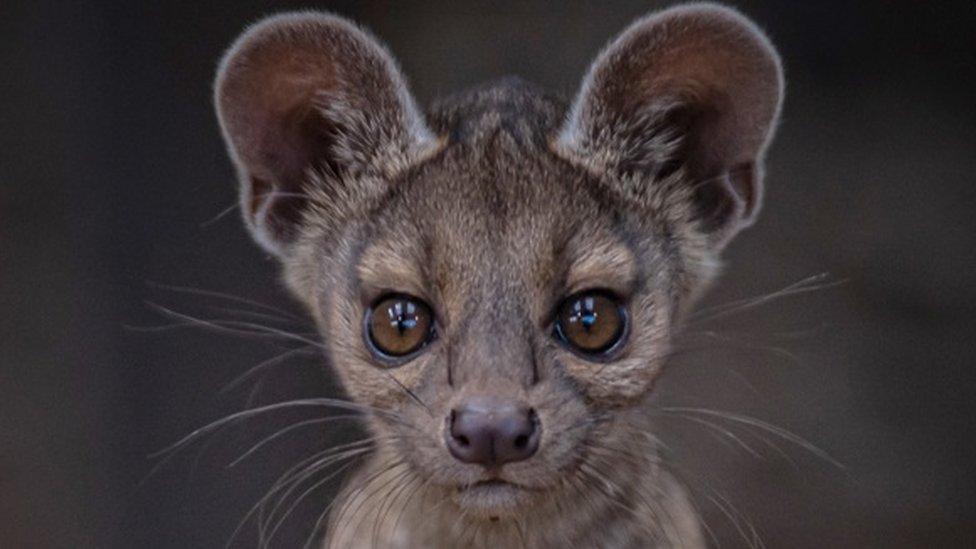
- Published18 July 2022
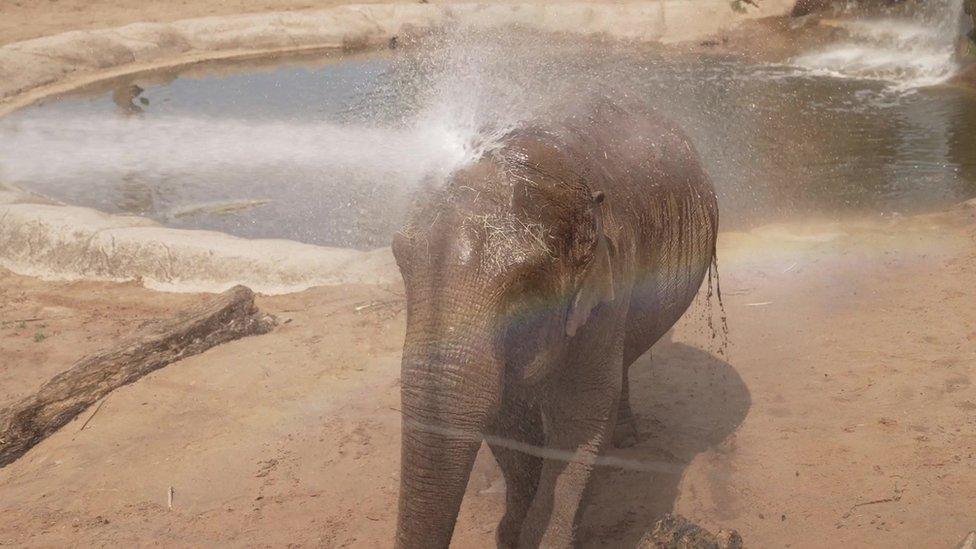
- Published11 February 2022
